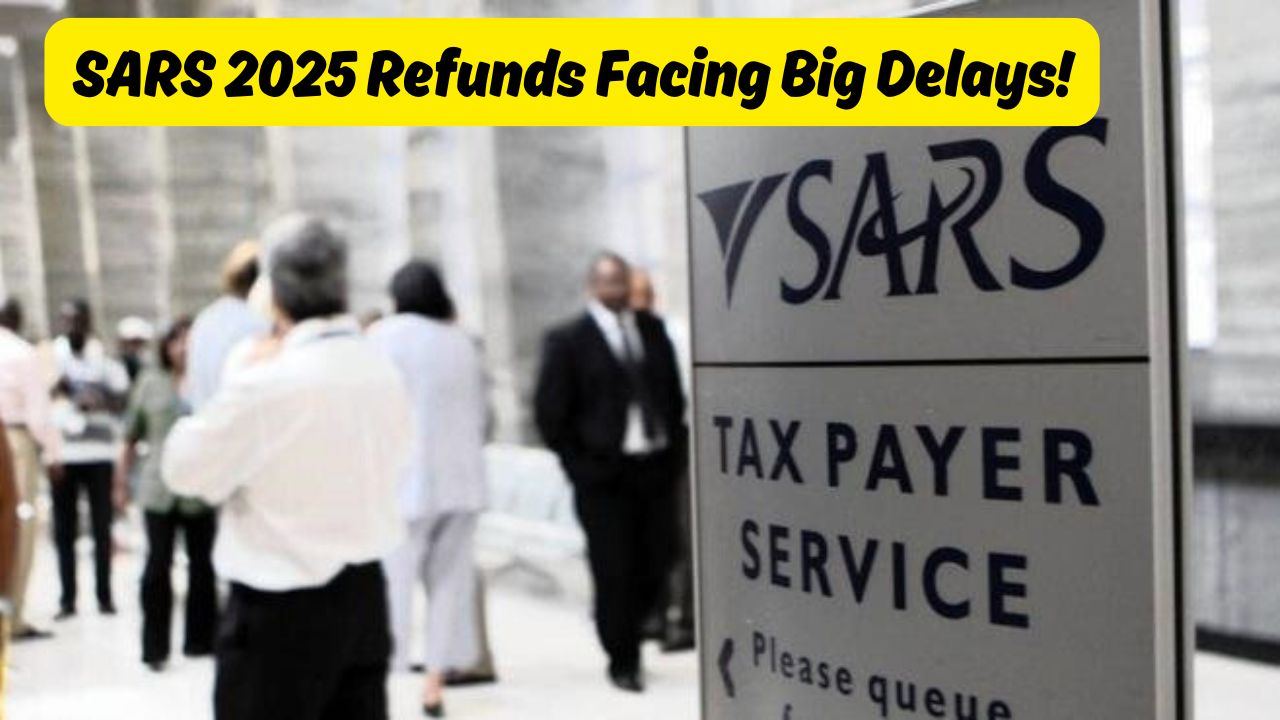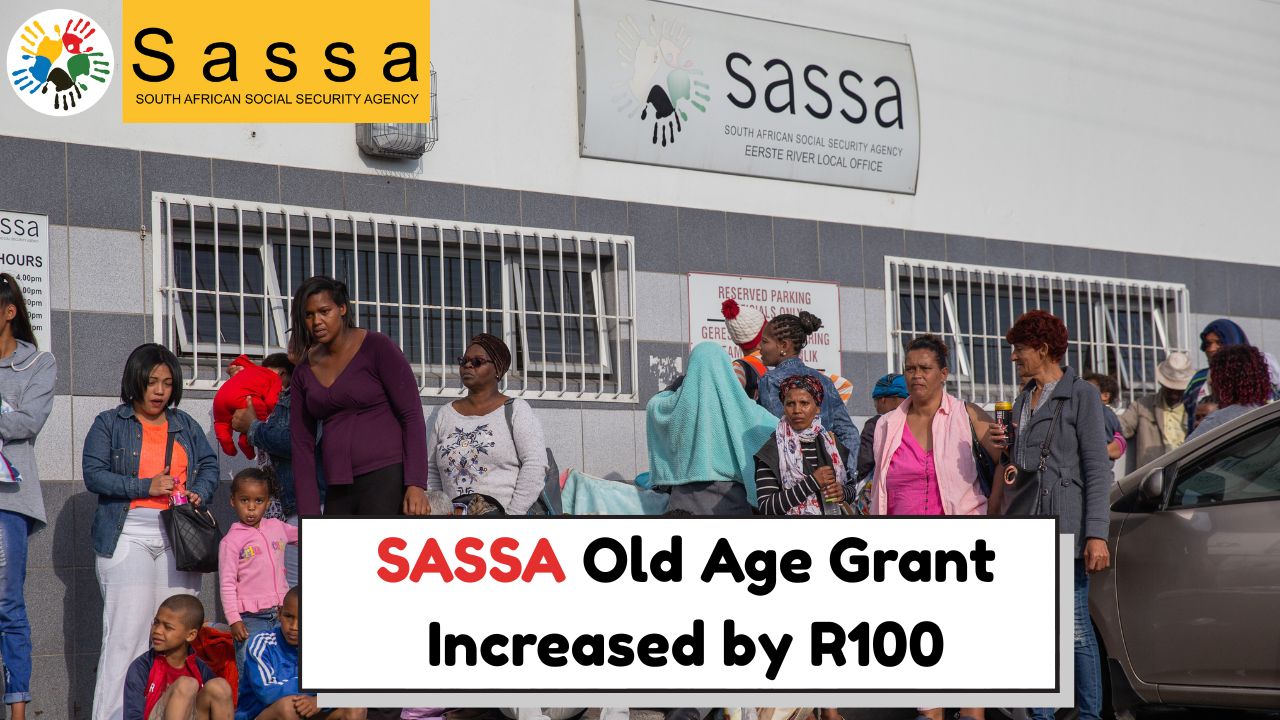SARS Refund Delays – In 2025, millions of South African taxpayers are experiencing significant delays in receiving their SARS (South African Revenue Service) tax refunds. Traditionally, refunds have been processed within a few days to a few weeks after filing, but this year, even individuals who submitted on time and accurately are still waiting. The delays have sparked frustration and confusion, especially as many rely on their refunds for essential expenses. This article explains why these SARS refund delays are happening in 2025, who is affected, and what taxpayers can do about it.
Understanding the Root Cause Behind the 2025 Refund Delays
SARS has admitted that the refund process is taking longer in 2025 due to several systemic, administrative, and policy-related reasons. Here’s a breakdown of the main causes:
- Stricter audit procedures to combat fraud
- Upgrades in SARS’ eFiling and internal systems
- Staffing and capacity challenges during peak season
- Delays in third-party data verification (e.g., from employers and banks)
- Compliance checks triggered by specific red flags
These factors, when combined, are contributing to a much slower turnaround in tax refund processing times than in previous years.
Key Reasons Behind SARS Refund Delays in 2025
Below are the most significant reasons why taxpayers are not receiving refunds on time:
| Reason for Delay | Explanation |
|---|---|
| Automated Audit Triggers | Returns are being flagged automatically for further review |
| Bank Account Verification | SARS is manually verifying bank details to prevent fraudulent payouts |
| 3rd-Party Data Mismatches | Discrepancies in employer, medical, or investment data cause holds |
| Manual Review for High Refund Claims | Larger refund amounts face more scrutiny before approval |
| eFiling System Upgrade Glitches | Ongoing system upgrades have led to processing slowdowns |
| Delay in Supporting Documents | Refunds are on hold pending submission of required documentation |
| Outstanding Tax or Admin Penalties | Refunds may be offset by outstanding balances or penalties |
Who Is Most Affected by SARS Refund Delays?
Not every taxpayer is affected equally. Some groups are experiencing longer delays due to more stringent compliance reviews.
High-Risk or High-Value Refund Cases
- Individuals claiming medical expenses or travel allowances
- Taxpayers with discrepancies in third-party IRP5 data
- Self-employed individuals or freelancers
- Taxpayers with recent changes to bank account details
Low-Income and Salaried Workers
- Many low-income workers are being flagged due to mismatches in employer declarations
- Delays in third-party employer data (PAYE) submissions are slowing down automatic validations
Tax Practitioners’ Clients
- Even those filing through registered tax practitioners are facing longer waiting times due to bulk processing limits and compliance flags
What SARS Has Officially Said About the Delays
SARS released a public statement in early July 2025 addressing the refund delays. Here’s what they said:
“We are committed to ensuring all legitimate refunds are processed, but this year’s compliance reviews are more rigorous to reduce fraud. We ask taxpayers for patience as we finalize reviews and system upgrades.”
According to SARS, the average delay is now 14–28 working days, up from the usual 7–10 days in past years. They also indicated that over R1.5 billion in refunds were being held for audit or verification purposes as of mid-July 2025.
What You Can Do While You Wait for Your Refund
Waiting can be stressful—especially if you’re depending on your refund. But here are actionable steps you can take:
Verify All Your Details
Ensure your:
- Bank account number is correct and in your name
- Contact details on eFiling are up to date
- Employment income, medical, and retirement data matches your certificates
Check for Outstanding Balances or Errors
You can:
- Log in to SARS eFiling to see if any admin penalties are due
- Use the “My Compliance Profile” feature to see if you’re flagged
- Rectify any errors in your return via a Request for Correction (RFC)
Be Proactive with Communication
If it has been over 30 days since you filed and you haven’t received a refund or communication:
- Call SARS at 0800 00 7277
- Use the online query system to submit a case
- Visit a SARS branch (appointment required) for manual resolution
What to Expect in the Coming Weeks
SARS is currently processing refunds on a staggered basis, prioritizing those that have passed the new compliance checks. They are also rolling out system patches to reduce errors in automated assessments. If no further verification is required, many taxpayers can expect refunds to start being released from August 1st, 2025 onwards.
For more complex or flagged returns, the waiting period may stretch to September or even October 2025. This makes early filing next year even more important to avoid future backlog.
Tips to Avoid Refund Delays in Future Years
SARS refund delays might be here to stay, especially with tightening regulations. Here’s how to minimize issues next year:
- File early (within the first 2 weeks of tax season)
- Keep bank accounts and personal info updated
- Submit all supporting documents in advance
- Use a registered tax practitioner for accurate filing
- Avoid overclaiming or suspicious deduction patterns
FAQs on SARS Refund Delays in 2025
Q1. How long is the current refund delay?
A1. Refunds may take 14–28 working days, or longer if flagged for audit.
Q2. Can I still get my refund if I have old admin penalties?
A2. No, SARS will first deduct any penalties or outstanding tax before issuing your refund.
Q3. I submitted documents—how can I follow up?
A3. Log into SARS eFiling and check the status under “History” or contact SARS directly.
Q4. Is it safer to use a tax practitioner in 2025?
A4. Yes, especially if your return is complex or includes high-value claims.
Q5. What’s the most common reason refunds are delayed this year?
A5. Most delays are due to stricter fraud checks and third-party data mismatches.





